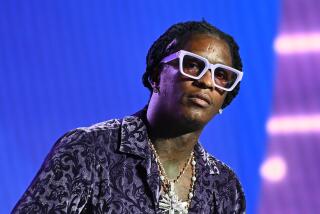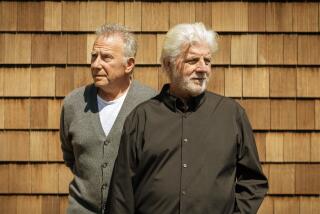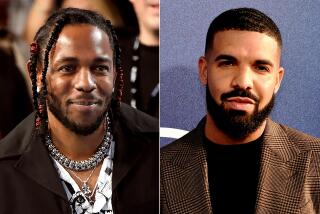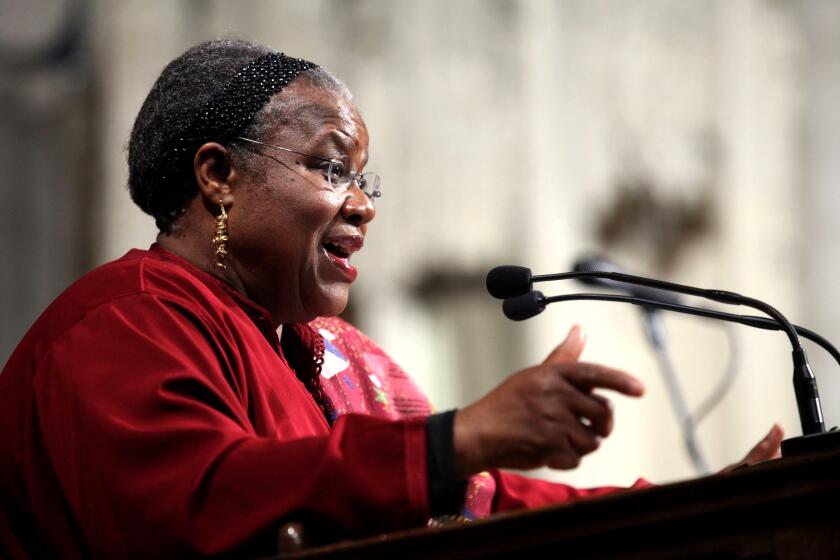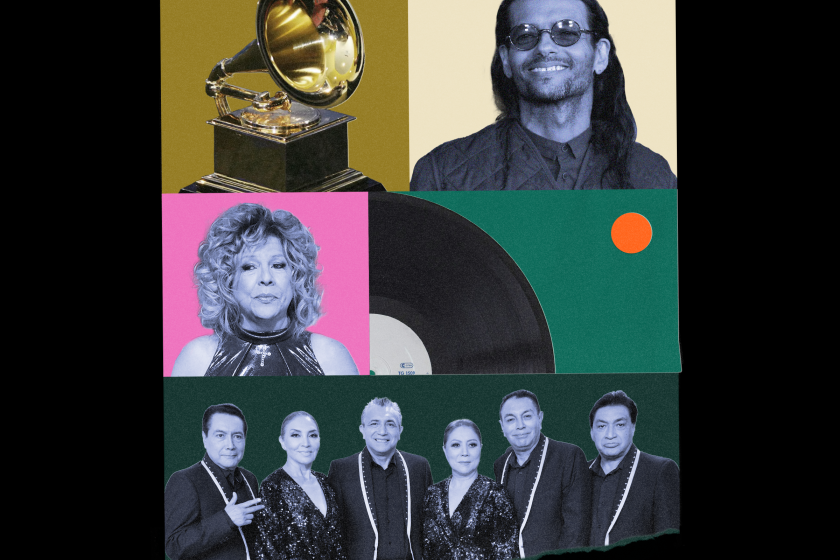There Are No Gentle Weeping Guitars Here
The guitar, throughout much of the ‘70s and ‘80s, seemed on the verge of becoming the central instrument in jazz. Its dominance, as well as its appeal to young musicians, did not diminish until the emergence in the last decade of a talented generation of new horn players.
But the guitar’s great versatility, and the fascinating range of colors and methods it brought to jazz, continue to be essential to the expansion of the music’s creative territory. This group of recordings by five artists who cover a wide spectrum of styles provides a healthy sampling of the diverse qualities of the contemporary jazz guitar.
* * * Jim Hall, “Dialogues” (Telarc). The ever-adventurous Hall opens up his playing in an array of duets with guitarists Mike Stern and Bill Frisell, fluegelhornist Tom Harrell, tenor saxophonist Joe Lovano and accordionist Gil Goldstein. And he seems comfortable in every setting, from funk and fusion with Stern and Frisell to straight-ahead blowing with Harrell and Lovano, as well as two atmospheric mood pieces with Goldstein. In addition to Hall’s eclectic adaptability, he displays an impressive talent for composition in “Simple Things,” a floating waltz; “Bon Ami,” a harmonically lush ballad, the boppish “Dream Steps,” and the satirical “Uncle Ed.”
* * 1/2 John Scofield, “Groove Elation” (Blue Note). The title pretty well describes what Scofield has in mind this time out. Accompanied by the insistently swinging rhythm section of keyboardist Larry Goldings, bassist Dennis Irwin and drummer Idris Muhammad, Scofield lays down 10 funk-driven originals guaranteed to keep the body moving. The power and the momentum of the music are intensified by a four-piece brass section and brisk, upbeat arrangements, and Scofield’s playing is appropriately light-hearted and easygoing. It’s not brain surgery, but it’s fun, and may supply Scofield with his most commercially successful venture.
* * 1/2 Birelli Lagrene, “My Favorite Django” (Dreyfus). Guitarists reinvent Django Reinhardt at their peril. If anyone is up to the task, however, it should be the French guitarist Lagrene, whose first album, at the age of 13, was a tribute to the legendary jazz master. This time out, Lagrene has taken an even bolder step by attempting to encapsulate 11 of Reinhardt’s compositions in contemporary frameworks. The results are mixed. Positioning works such as “Daphne,” “Babik” and “Nuits de Saint Germain des Pres” over funk-based rhythms doesn’t do much to enrich the lines. But Lagrene’s lovely, string section-enhanced readings of the classic “Nuage,” his swinging duet with keyboardist Koono on “Blues for Ike” and his elegant, acoustic rendering of “Solo” are more than worth the price of admission.
*
Jazz guitarists, of any stylistic bent, have never been fond of the workload involved in performing in a trio with bass and drums. Why not? Because, lacking the presence of another chord-producing instrument (such as the piano), the guitarist is obliged to produce both melodies and harmonies.
Two vastly different players reveal contrasting means of dealing with the problem:
* * John Abercrombie, “Gateway” (ECM). Abercrombie, bassist Dave Holland and drummer Jack DeJohnette have occasionally gotten together over the last 20 years under the Gateway title. Each, of course, is a major player, and their collective musical togetherness has the open interactivity of a purely democratic effort.
The melody/harmony issues, for this trio, are resolved in compositions, all originals by group members, which contain long, vamp-based passages that avoid the harmonic demands present in more song-based material. Despite the quality of the playing, the lethargic harmonic movement as well as the emotional chilliness of Abercrombie’s electronics-heavy sound make for a weary listening experience.
* * 1/2 Kenny Burrell, “Lotus Blossom” (Concord). The wily veteran Burrell takes a more traditional approach in this attractive compilation of standards. In trio performances with bassist Ray Drummond and drummer Yoran Israel, and duo outings with Drummond, Burrell alternates rich harmonic statements with single string lines filled with arpeggiated phrasing spelling out the underlying chords.
This is especially effective on the trio tracks, less so on the duos, which cry for some sort of percussive support. Interestingly, Burrell, whose articulation occasionally stumbles in the up-tempos, sounds best in the lush, romantic solo versions of such tunes as Duke Ellington’s “Warm Valley” and Billy Strayhorn’s “Lotus Blossom.”
Albums are rated on a scale of one star (poor) to four (excellent).
More to Read
The biggest entertainment stories
Get our big stories about Hollywood, film, television, music, arts, culture and more right in your inbox as soon as they publish.
You may occasionally receive promotional content from the Los Angeles Times.
